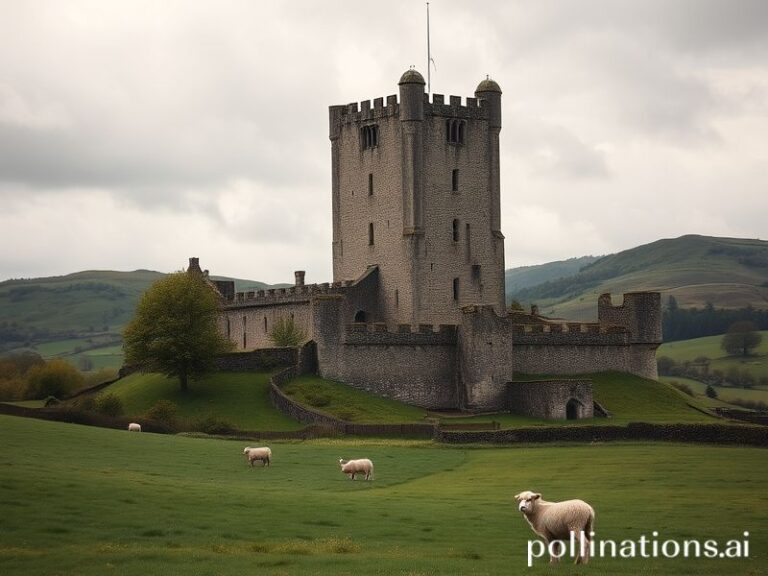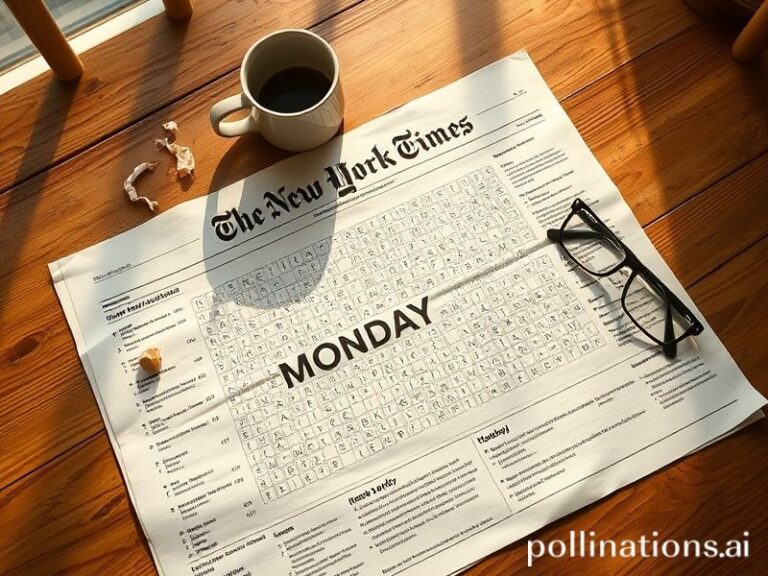Yankees Games: How the Bronx Became the World’s Most Expensive Therapy Session
Yankees Games: A Global Ritual in the Cathedral of Late Capitalism
By Our Man in the Bleachers (and Occasionally in the Bar)
Somewhere between the first ceremonial pitch and the seventh-inning stretch, the Bronx becomes the temporary capital of the world. Diplomats in bespoke bomber jackets forget trade-war talking points; hedge-fund emirs in Italian loafers trade fist-bumps with Dominican peanut vendors; and a Japanese travel influencer live-streams her artisanal garlic-fries to 3.2 million insomniac viewers in Sapporo. All of them have come to watch nine men in pinstripes play a pastoral game originally invented to keep English schoolboys from vandalizing hedgerows, now turbo-charged into a USD 11 billion content empire. The global significance, dear reader, is less about baseball than about how effortlessly the planet will queue up to watch America monetize nostalgia.
Consider the export figures. The YES Network beams Yankees games to 180 countries, which is 22 more than have reliable drinking water. In Taiwan, night-shift semiconductor engineers time their micro-naps to Judge’s at-bats; in Lagos, data-plan hawkers sell “Bronx Bundles” so Okada riders can stream the eighth inning between traffic lights. The European Union, ever allergic to American hegemony, still allows the Bronx Bombers to dominate prime satellite slots—proof that even Brussels prefers Aaron Boone’s managerial meltdowns to another debate on olive-oil subsidies.
The geopolitics grow darker when you realize the scoreboard is the only place where the United States still runs up numbers uncontested. While Congress dithers over debt ceilings and the yuan elbows the dollar in oil markets, Gerrit Cole’s fastball is clocked at 98 mph in every language that has a word for “velocity.” Soft power, they used to call it; now it’s just power with a souvenir beer sleeve.
No other cultural product travels so well with so little translation. K-pop needs subtitles; Marvel needs dubbing; the Yankees only need a stadium organ playing the opening riff of “Empire State of Mind.” The lyrics could be Martian for all anybody cares—everyone understands the subtext: we sell the mythology, you buy the cap. And buy it they do. Counterfeit Yankees merchandise is the second-largest informal economy in three continents, right after sand mining and just ahead of wedding dowries. You haven’t grasped globalization until you’ve seen a goat herder in the Hindu Kush wearing a frayed “Jeter 2” jersey like a tribal talisman.
The real spectacle, though, is inside the ballpark—an open-air laboratory where late-stage capitalism tests its newest sedatives. Your ticket, once a slip of paper, is now an NFT minted on a blockchain that uses enough electricity to run Reykjavik for a week. Facial-recognition cameras log every grimace when the bullpen implodes, data instantly auctioned to sports-gambling startups in Malta. Between innings, a drone delivers Impossible Nachos™ to Section 227, because God forbid anyone miss three minutes of advertising.
Yet the crowd—global, jet-lagged, chronically online—behaves as though nothing has changed since DiMaggio. They stand for the anthem, remove caps embroidered in Indonesian sweatshops, and sing along to a 1930s jingle about peanuts and Cracker Jack, blissfully unaware that both snacks are now owned by multinationals headquartered in tax havens. The ritual survives precisely because it appears un-ravaged by time, even as everything around it curdles into parody. There’s comfort in that, the same way there’s comfort in a fallout shelter stocked with Twinkies: the shelf life is terrifying, but at least you know what you’re getting.
When the final out lands in the glove of a center fielder making more per game than the GDP of Tuvalu, the stadium empties like a refugee camp after the aid convoy leaves. Delegates return to climate summits with souvenir bats in overhead bins; influencers queue for Ubers to JFK; the goat herder’s stream buffers, then dies. Somewhere in the silence, the grounds crew rolls up the tarp, whispering the only prayer America still believes in: “Play ball—tomorrow we do it all again.”







